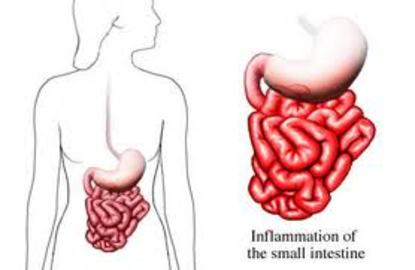Introduction

Inflammatory bowel diseases (IBDs) cover a whole group of disorders of the intestines becoming inflamed, meaning all swollen and red. This is probably due to the body’s immune reaction towards the intestinal tissue. There are two main types of inflammatory bowel diseases; the Ulcerative Colitis and the Crohn’s disease. The former is restricted to the large intestine (colon) only. Although the former can include any area of the gastrointestinal tract, that is mouth to anus, it usually influences the small intestine or/and the colon.
Step 1
The strange thing is that the cause of inflammatory bowel diseases is not yet known. Therefore it is known as an idiopathic disease i.e. a disease of unknown cause. It is some unknown agent that trigger’s the immune system in producing this inflammatory reaction inside the intestinal tract that goes out of control. Ultimately the intestinal wall faces damage which causes abdominal pain and bloody diarrhea.
Step 2
Before going onto the treatment it is important to know the symptoms specific to these bowel diseases. For Crohn’s disease the usual symptoms are abdominal cramps, severe diarrhea that can sometimes contain blood, fever and sudden weight loss. These are usually backed up by feeling of tiredness and people losing their appetites. Ulcerative Colitis has somewhat the same symptoms but without bloody discharges.
Step 3
The thing with these symptoms is that at times they can be so light that you cannot determine that they are inflammatory bowel diseases. But they can get very severe as well. When you have these symptoms a visit to the doctor is recommended where a stool test and full on blood test can determine if it is in fact IBD. In some cases a colonoscopy can take place to determine severity. This is because these symptoms can be common with other illnesses as well and can cause confusions.
Step 4
The biggest treatment for these two bowel diseases is eating a healthy diet which is not too rich in fiber and dairy products. This is done to restrict bowel movements momentarily and keep symptoms in control. It is also important to keep stress on a low. When this does not help then medication needs to be sought. The aim of medical treatment is the reduction of inflammation and not to cause any more flaring up.
Step 5
Doctors follow a stepwise treatment and start off with mild medicines. If these do not work out the next step is antibiotics to treat the intestinal walls. Later on immune modifiers can be introduced. The steps are introduced when previous ones fail to work. If all these fail to work and symptoms persist then surgery needs to be carried out to treat these bowel diseases.
Tips

It is said that inflammatory bowel diseases have an inherent factor attached to them as well. So chances increase if it runs in the family. It is good to be aware of these symptoms for bowel diseases so they can be detected and treated timely rather than them getting severe and leading on to painful surgery. These are not fatal diseases; however people carrying IBDs can be at a greater death risk as compared to others.